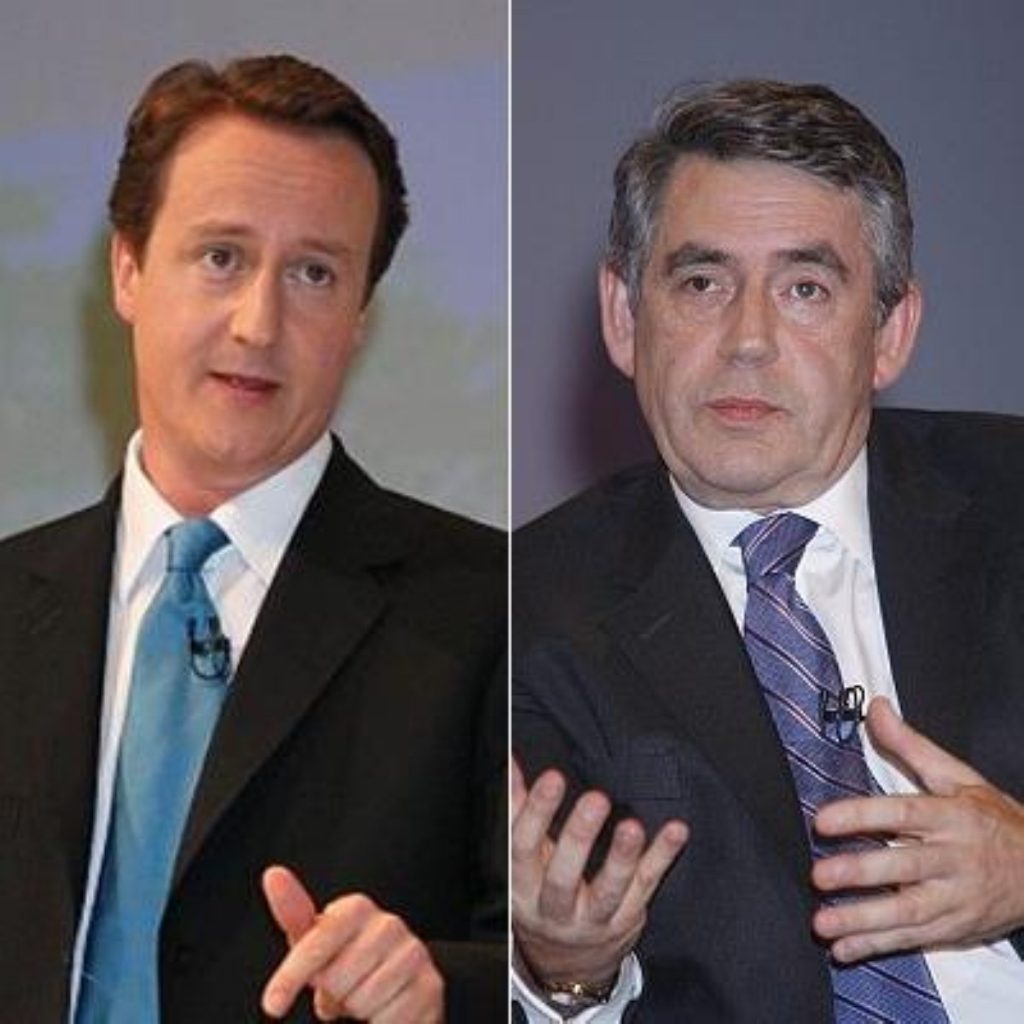Brown rejects call for TV debate
Gordon Brown has rejected calls to take part in a televised debate with party leaders ahead of the next general election.
David Cameron had argued that one of the reasons for the supposed level of interest in the US elections is that voters can watch their candidates discussing the issues on television.
Tony Blair also repeatedly refused to engage in a television debate, although Mr Cameron reminded the prime minister today that he had been happy to do so as shadow chancellor.
Mr Brown argued the US does not have an equivalent to prime minister’s questions, claiming this allows the public to assess politicians’ policies.


The Conservative leader – whose party famously failed to make any electoral gains on the back of former leader William Hague’s well-regarded PMQs performances – responded that few people watch the weekly exchange.
This downplaying of PMQs came in a week where Mr Cameron was judged to have performed poorly against his rival.
Mr Cameron chose to focus on trust in parliament – prompting Mr Brown to remind the normally combative Tory leader that he had “broken” his own promise to end “Punch and Judy politics”.
He also queried how Mr Cameron’s call for a televised debate squared with his insistence of the “primacy of parliament”.
Mr Brown confirmed that the government wants to take future decisions on MPs’ pay out of the House of Commons, but said the house as a whole must approve any reforms.
On expenses, the prime minister agreed that there was greater need for openness and transparency and supported calls for the publication of detailed expenses claims.
Mr Brown also scored a point against Nick Clegg, welcoming the Liberal Democrat leader back to the chamber after his party walked out yesterday in protest at the speaker’s refusal to allow an amendment calling for a referendum on the UK’s position in the EU.
Mr Clegg criticised the government’s policy on mental health, claiming the additional 3,600 therapists announced yesterday were far below the 10,000 demanded by the government’s own review.









